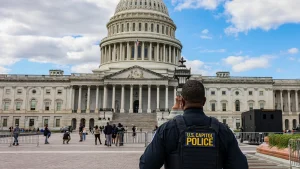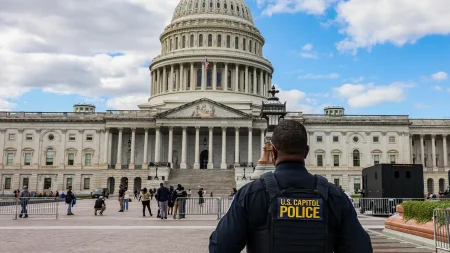Afghanistan-Pakistan Relations Deteriorate as Cross-Border Tensions Reach New Heights
Diplomatic Crisis Unfolds as Afghan Officials Condemn Former Pakistani Allies
In a significant escalation of regional tensions, Afghan officials have launched scathing criticisms against their former allies in the Pakistan military, marking a dramatic deterioration in the already fragile relationship between the neighboring countries. The diplomatic breakdown comes amid increasing cross-border hostilities and represents one of the most serious rifts between Kabul and Islamabad in recent years.
Speaking at a hastily arranged press conference in Kabul yesterday, Afghanistan’s National Security Advisor Hamdullah Mohib described Pakistan’s military establishment as “puppeteers” who have “consistently undermined Afghanistan’s security interests.” His unusually direct language reflects the growing frustration among Afghan leadership circles, who increasingly view Pakistani military intelligence as complicit in the violence plaguing their nation. “For decades, we have extended our hand in friendship, only to find daggers concealed in Pakistan’s palm,” Mohib stated, his voice resonating through the crowded room of international journalists.
The allegations from Kabul specifically point to what Afghan officials characterize as Pakistan’s “double game” – publicly supporting peace efforts while allegedly providing sanctuary, training, and material support to militant groups operating across the Afghanistan-Pakistan border. Intelligence reports cited by senior Afghan military officials suggest that cross-border militant movements have increased by approximately 40% in the past six months, a statistic that Afghan authorities attribute directly to lax enforcement on Pakistan’s side of the Durand Line – the 1,600-mile border that has long been a source of contention between the two nations.
Historical Context: From Strategic Allies to Strategic Adversaries
The current crisis cannot be understood without examining the complex historical relationship between Afghanistan and Pakistan. Following the Soviet invasion of Afghanistan in 1979, Pakistan served as a crucial frontline ally in supporting Afghan resistance fighters, with both countries united in their opposition to Soviet forces. The Pakistani military’s Inter-Services Intelligence (ISI) coordinated closely with Afghan mujahideen groups and American intelligence agencies, creating bonds that would shape regional dynamics for decades to come.
This alliance, however, began fracturing following the Soviet withdrawal and the subsequent civil war in Afghanistan. The rise of the Taliban in the mid-1990s – a movement widely believed to have received significant Pakistani support – marked a pivotal moment in the relationship. After the U.S.-led intervention in 2001 and the fall of the Taliban government, relations entered an era characterized by mutual suspicion and occasional cooperation. Pakistan officially joined the “War on Terror” as a key U.S. ally, while Afghanistan rebuilt its government under Western protection.
The relationship has weathered numerous crises over the past two decades, including border skirmishes, terrorist attacks, and diplomatic disputes. However, current tensions appear to have reached unprecedented levels following the withdrawal of U.S. forces from Afghanistan and the subsequent power vacuum. Afghan President Ashraf Ghani has increasingly voiced concerns about Pakistan’s influence, recently stating in a televised address that “Pakistan’s strategic depth policy continues to view Afghanistan as territory to be controlled rather than a sovereign neighbor to be respected.”
Economic and Security Implications of the Deteriorating Relationship
The escalating hostility carries profound implications for regional stability and economic development. Trade between the two countries, which reached approximately $1.5 billion annually in recent years, has already shown signs of contraction. The Afghanistan-Pakistan Transit Trade Agreement (APTTA), a cornerstone of economic cooperation, now faces an uncertain future as political tensions spill over into commercial relations. Afghan merchants report increasing difficulties at border crossings, with many shipments facing extended delays or outright rejection.
Perhaps more concerning are the security ramifications of the diplomatic breakdown. Intelligence sharing between Afghan and Pakistani security services – crucial for combating extremist threats that endanger both countries – has reportedly diminished significantly. A senior Afghan intelligence official, speaking on condition of anonymity due to the sensitivity of the matter, confirmed to this publication that “critical information sharing protocols have been suspended indefinitely,” creating dangerous blind spots in counter-terrorism operations. The deterioration in cooperation comes at a particularly volatile time, with multiple militant groups, including Islamic State Khorasan Province (ISKP) and Tehrik-i-Taliban Pakistan (TTP), exploiting the tensions to strengthen their operational capabilities in the border regions.
Humanitarian organizations operating in the region have raised alarms about the potential consequences for civilian populations. The United Nations Office for the Coordination of Humanitarian Affairs (OCHA) reports that approximately 4.2 million people living in border provinces could face increased vulnerability if cross-border tensions continue to escalate. Displacement patterns already show concerning trends, with internal migration away from border areas increasing by 27% compared to the same period last year.
International Response and Diplomatic Efforts to Defuse Tensions
The international community has responded to the crisis with growing concern, recognizing the potential for regional destabilization. The United States, despite its diminished military presence in Afghanistan, has engaged in shuttle diplomacy between Islamabad and Kabul. U.S. Special Representative for Afghanistan Reconciliation Zalmay Khalilzad arrived in the region last week, meeting with officials from both countries in an attempt to facilitate dialogue and deescalate tensions.
“The stability of South Asia depends significantly on productive Afghanistan-Pakistan relations,” Khalilzad stated following meetings with Pakistani Prime Minister Imran Khan. “We encourage both our partners to establish direct communications channels and address their differences through diplomatic means.” The European Union has similarly expressed concern, with High Representative Josep Borrell emphasizing that “regional cooperation remains the only sustainable path forward for addressing shared security challenges and achieving economic prosperity.”
China, with substantial economic investments in both countries through its Belt and Road Initiative, has offered to mediate discussions. Chinese Foreign Minister Wang Yi has extended invitations to his Afghan and Pakistani counterparts for trilateral talks in Beijing, highlighting China’s growing diplomatic influence in the region. Russia, too, has signaled willingness to facilitate dialogue through the Moscow Format Consultations on Afghanistan, a regional platform established to promote peace and stability.
Expert Analysis: Future Prospects for Afghanistan-Pakistan Relations
Regional security experts present varying assessments of how the current crisis might evolve. Dr. Avinash Paliwal, Deputy Director of the South Asia Institute at SOAS University of London, suggests that while rhetoric has intensified, both countries ultimately recognize their mutual dependence. “The geographical reality is inescapable – Afghanistan needs Pakistani trade routes for economic survival, while Pakistan requires a stable Afghanistan to secure its western border,” Dr. Paliwal explained in an interview. “Despite the hostile rhetoric, pragmatic cooperation in specific domains will likely continue behind the scenes.”
Other analysts offer less optimistic predictions. “We’re witnessing a fundamental recalibration of Afghanistan’s foreign policy orientation,” argues Dr. Marvin Weinbaum, Director of Afghanistan and Pakistan Studies at the Middle East Institute. “Afghan leadership appears increasingly willing to sacrifice historical economic ties with Pakistan in favor of strengthening relations with India, Central Asian states, and Iran – a strategic pivot that Pakistan views as threatening its core security interests.”
The implications extend beyond bilateral relations. Dr. Elizabeth Threlkeld, Director of the South Asia Program at the Stimson Center, notes that “the Afghanistan-Pakistan relationship has always been a critical factor in regional stability. The current deterioration creates opportunities for non-state actors to exploit governance gaps and for external powers to advance competing interests in an already fragile region.”
As tensions continue to mount between these nuclear-armed neighbors, the international community watches with growing apprehension. The coming weeks will prove critical in determining whether diplomatic channels can be restored or if the region faces a prolonged period of heightened instability. What remains clear is that the consequences of this diplomatic rupture will resonate far beyond the borders of Afghanistan and Pakistan, potentially reshaping the security architecture of South Asia for years to come.











